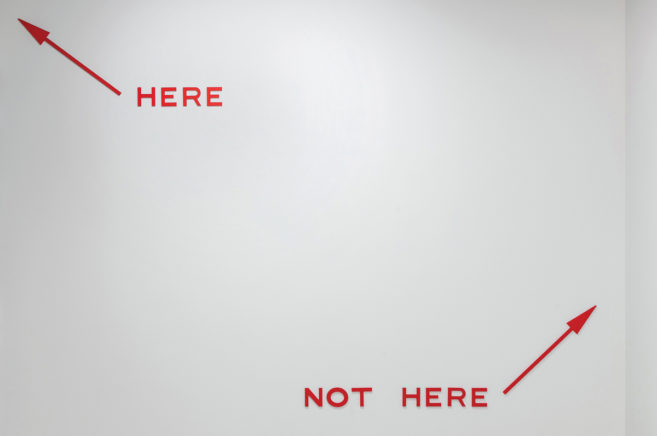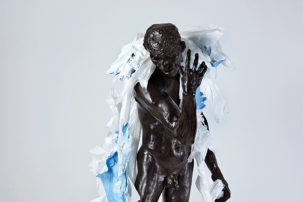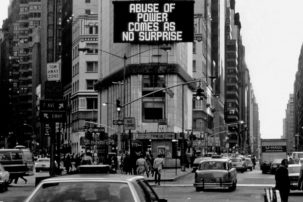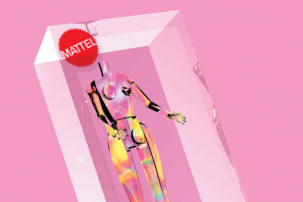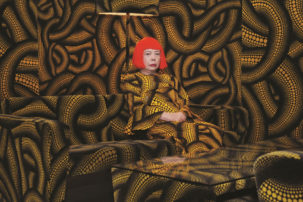British author China Miéville’s dystopian crime novel The City & the City takes place in the imaginary European cities of Besźel and Ul Qoma. These two cities are remarkably different in terms of their political regimes, religions and cuisines. Their citizens speak different languages and dress differently. They even have contrasting habits: while the Besź are known to be punctual, the Ul Qomans are generally tardy. What makes this story surreal is that, geographically speaking, Besźel and Ul Qoma occupy the same space—they are for the most part superimposed, but merely perceived as two different cities. Miéville uses the term “crosshatched” to refer to streets where citizens of the two cities walk side by side, but are not allowed to see or hear each other. It is a gross offense for the Besź and Ul Qomans to engage in any shape or form.
Turkey, after 13 years of being governed by the Justice and Development Party (AKP), and with at least 4 more years to come, is starting to feel somewhat similar to this disturbing scenario. The 25th parliamentary elections in the Republic of Turkey took place last Sunday, and the Islamist AKP secured yet another majority government with 49% of the popular vote. There are three other political parties that passed the 10% threshold necessary to enter parliament: the secularist CHP with 25%, the Turkish nationalist MHP with 12% and the predominantly Kurdish leftist HDP with nearly 11%. That there are other political views that are able to be represented is something to be thankful for in this increasingly authoritative regime, but the AKP’s crushing 49%, which gives it 317 of the 550 parliamentary seats, makes it very difficult for the others to do anything, especially considering that they have hardly ever been able to unite around any issue in the past.
I paint such a bleak picture because, as a person who has lived more than half of his life in Turkey, I don’t know a single person who voted for the AKP. The simple explanation could have been that I’m a narrow-minded person who sticks to his own kind. But that I know many other citizens of Turkey who say the same thing, and to hear their exasperated cries asking, “Who keeps voting for these people?!” indicates that the problem is not mine alone. And this deepening divide is currently reaching a level that may soon be irreparable.
Admittedly, there have always been tensions between different factions of Turkey’s society. In the crudest and most generalizing form, these consist of two main fault lines: one between the conservatives and the seculars, and the other between the Turks and the Kurds. When the AKP first came into power in 2002, it was with the false promise of peaceful coexistence between the conservatives and the seculars, which was enthusiastically promoted by the West. “The importance of backing Erdoğan,” reads the title of an article in the Economist from 2004, referring to then–prime minister Recep Tayyip Erdoğan. It continues: “Although the Turkish prime minister and his Justice and Development Party have Islamist roots, they are proving in office to be of the liberal variety that believes in free markets and secular democracy. If democracy is to be successfully fostered across the Muslim world, especially in Arab countries, it is vital to encourage this Turkish exemplar.” Fast forward to an article that appeared in the Economist last week: “Sultan at bay: Turks should vote against the ruling Justice and Development Party on November 1st.” How convenient and easy it is for some to change their minds when their plans don’t work out, and give electoral orders to the citizens of another country.
Evidently the people of Turkey (who are not only Turks, as the Economist suggests, but also Kurds, Arabs and Armenians, among others) did not take heed. The results of this election come as a surprise to most due to the striking change in the parties’ votes compared to the elections that took place merely five months ago. June’s elections gave the AKP less than 41% and not enough seats in parliament to form a majority government, which, for democratically minded citizens, was reason for a short-lived jubilation. I cringe when I remember how naïvely happy we were, thinking that this Islamist ideology had finally been defeated. We were temporarily blinded, unable to realize that a coalition would essentially mean suicide for the AKP, given all the not-so-secret crimes they have committed over the years. Instead of forming a coalition, the AKP and its mastermind Erdoğan (who, as president, is constitutionally required to be politically neutral but is blatantly not so) chose to call an early election and simultaneously provoked the Kurdish armed forces to engage in war, in order, one can only assume, to regain the sympathy of Turkish nationalists. Their gamble paid off handsomely.
I would be lying if I said I was surprised, not because I was expecting the AKP to increase their votes by 9% in just five months, but because I have lost the ability to find anything surprising. I could not believe it when two Turkish F-16 jets massacred 34 Kurdish civilians in Roboski in 2011 and it took the mainstream media almost 12 hours to report on it. I was shocked at the police brutality targeting my friends in the summer of 2013 when they took to the streets to protest during the Gezi uprising. I was astonished at the audacity of Erdoğan when he accused a 15 year old who was killed by police on his way to buy bread during these protests of being a terrorist, and asked a crowd of thousands to boo his mother. I was stunned while we all listened to leaked tapes of various AKP officials’ telephone conversations documenting their massive corruption in detail (“Did you fully dissolve it?” Erdoğan asks his son, meaning whether they got rid of all the cash they have at home. “Not yet, dad, we still have €30 million that we could not dissolve yet,” his son responds). I was outraged when an advisor of Erdoğan kicked a mourner who was protesting after 311 people died in a mine disaster in Soma. I was appalled when Deputy Prime Minister Bülent Arınç said last year on television that women should not laugh in public. I was dumbfounded when I saw the photographs and video of the trucks loaded with arms sent by the Turkish intelligence to Islamist rebels in Syria. I watched in disbelief when the police tear-gassed people trying to help each other right after ISIS attacked with two bombs last month in Ankara and killed 102 people. I have repeatedly been astounded over the years when journalist after journalist was either jailed or fired from mainstream media for voicing criticism of the government. Really, this list is endless and it doesn’t even seem possible to compile anymore. When I should have been surprised last Sunday to see that 49% of the public still supports this dictatorial regime, I no longer found myself capable. I think my first reaction was laughter. And then I was just annoyed that the incumbent Prime Minister Ahmet Davutoğlu said “Allah” more times than I could count in his post-election speech. That was about it.
Clearly human rights are not a concern for at least half of Turkey’s population, and the gut-wrenching events that pile up to constitute our shameful history do nothing to change this fact. But twice this year I flew from Vancouver to Toronto to vote in the Turkish elections (it is not possible to mail in your vote and there is no consulate in Vancouver, making it impossible to vote here). My father joked, “Your votes must be among the most expensive and inconvenient.” I would not have made the trip were it not for the Peoples’ Democratic Party (HDP), a predominantly Kurdish left-wing party co-chaired by Selahattin Demirtaş and Figen Yüksekdağ. This anti-capitalist party, “a union of the crushed” as Demirtaş refers to it, was founded in 2012 and calls for radical social change regarding issues of class, ethnicity, gender, sexuality, religion and ecology. One of the party’s most impressive tenets is its founding principle of gender equality. It operates on a system whereby it is required to be chaired by one woman and one man, and this is also implemented at the municipal level. The party’s manifesto prior to the June elections consisted of these 12 subheadings: We are women. We are youths. We are the rainbow. We are children. We are defenders of democracy. We are representatives of all identities. We are defenders of a free world. We are protectors of the nature. We are builders of a safe living economy. We are workers. We are labourers. We are the guarantors of social rights.
The HDP managed to scoop a whopping 13.1% of the votes in June, an unprecedented feat for a party with origins in the Kurdish political movement. In Sunday’s elections their level of support dropped to 10.7%, mainly due to the conflict between the Turkish state and the Kurdish armed organization PKK, which erupted in July after two years of ceasefire, resulting in many deaths on both sides. It was clear from the beginning that this escalation of violence was a tactic used by the AKP to besmirch the HDP, naming them “the seemingly legal branch of the terrorist organization,” despite the HDP’s repeated calls to the PKK to end its attacks. It was almost impossible for the public to hear the HDP’s attempts to counter the AKP’s allegations, since their MPs were not given a chance to speak on mainstream media. Perhaps it is enough to note that, in the month leading up to the elections, the state-owned national public broadcaster TRT devoted approximately 30 hours of coverage to the AKP and a mere 18 minutes to the HDP. Even Goebbels would be impressed.
It’s too soon to say exactly what kind of a dark future awaits us, or how much the HDP’s 59 MPs will be able to achieve. Their presence alone is consolation that brings out the optimist in me. But I am convinced that none of this bodes well for those in Turkey who increasingly feel that their way of life is threatened under this regime that permits no dissent. It is utterly demoralizing to see that the AKP’s strategy of fostering violence and then claiming to be the only power that can stop that violence has worked. It is possible to anticipate that the violence will temporarily dwindle now that the AKP got what it wanted, but it’s worth asking what price will have to be paid. The brief hope that a democratic regime was on the horizon was a blissful respite while it lasted, but, alas, the people have spoken: autocratic Islamism it is. What’s left for us to do is to pick up the pieces and carry on obstinately, hoping that one day our fellow citizens will agree that democracy is not a simple head count, but requires the diligent and compassionate work of looking out for the rights of others.

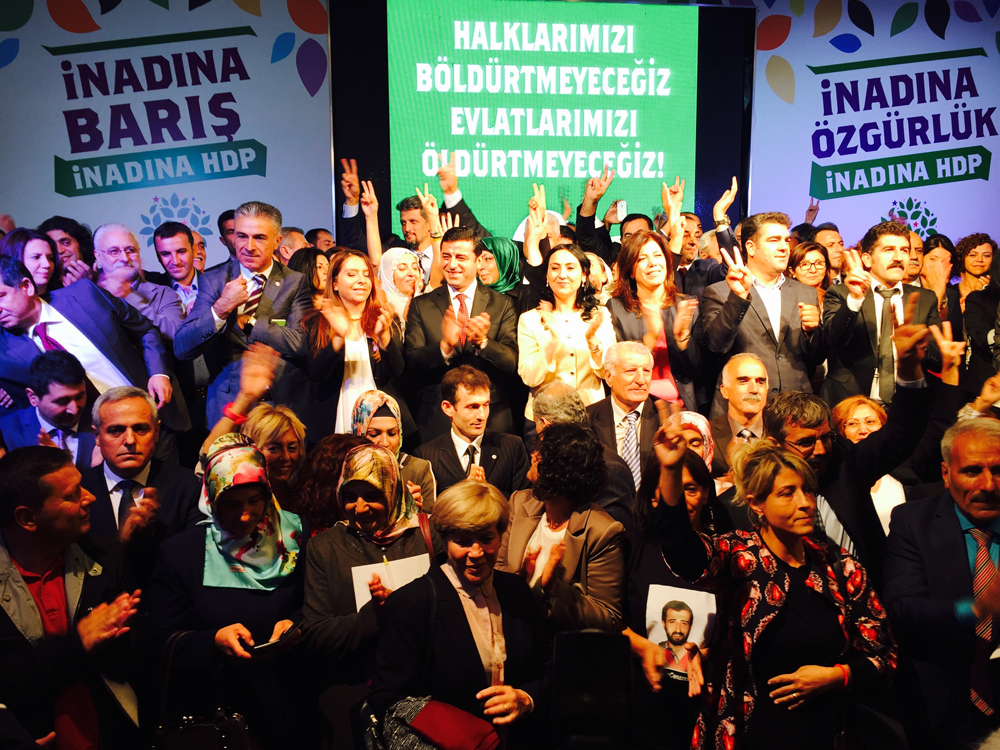 HDP co-leaders announcing the party's manifesto on October 1. Photo: Yıldız Yazıcıoğlu.
HDP co-leaders announcing the party's manifesto on October 1. Photo: Yıldız Yazıcıoğlu.
